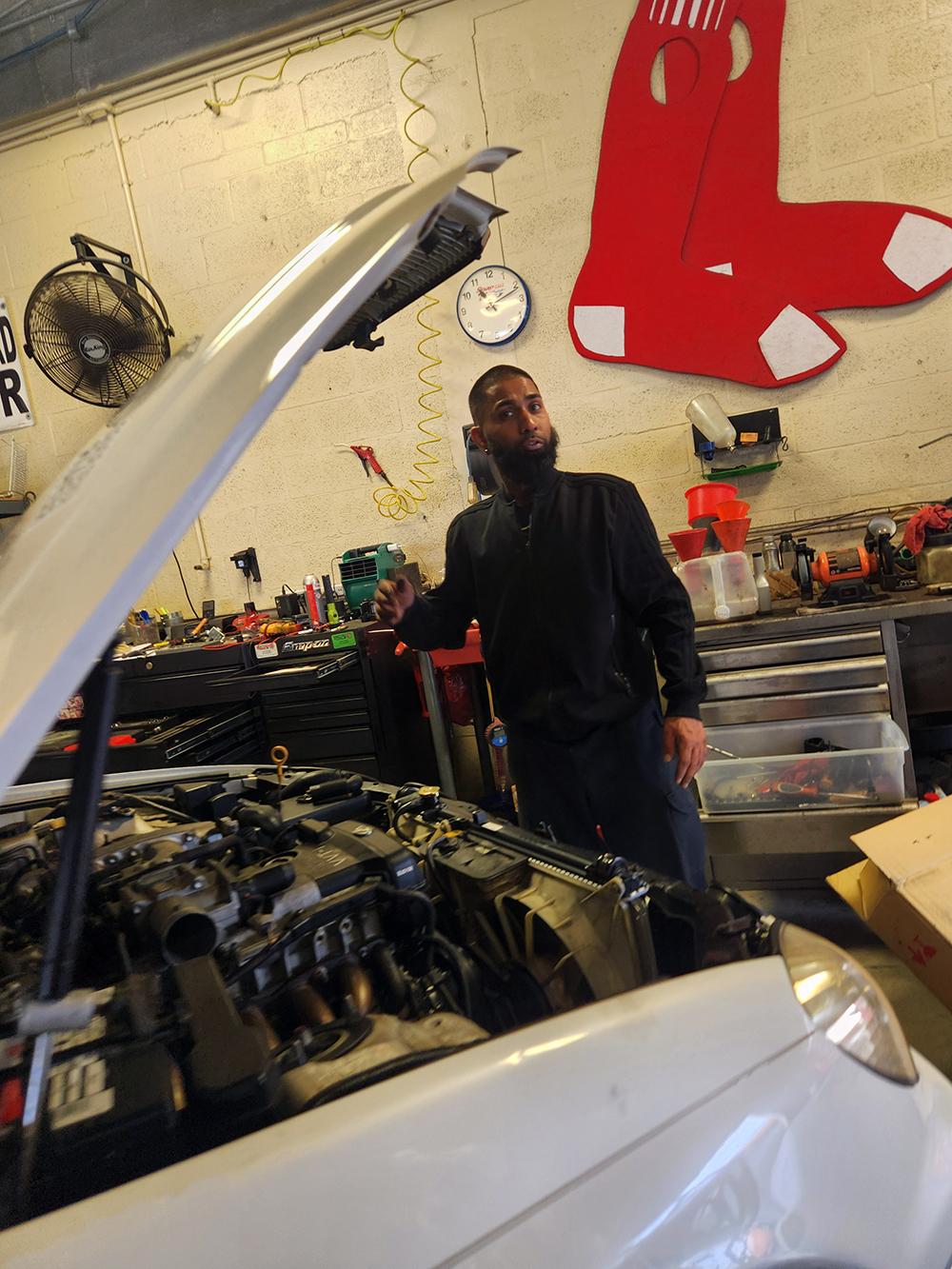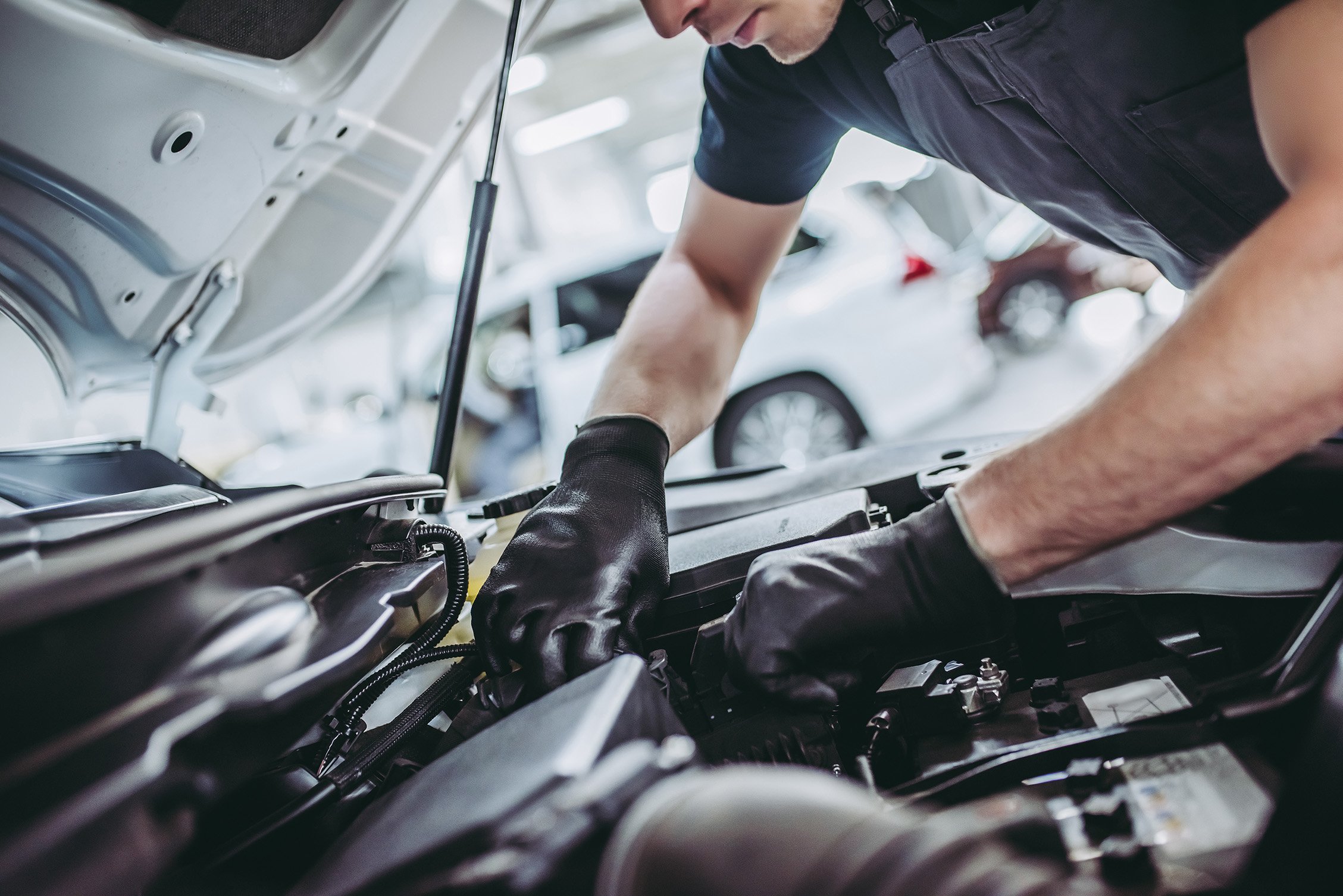All Categories
Featured
Your vehicle's engine is a complex system that counts on several interconnected parts to operate correctly. One of one of the most vital parts that ensures whatever runs smoothly is the timing belt. Though typically neglected, the timing belt plays an essential role in keeping your engine synchronized and running at peak efficiency. Ignoring its maintenance or substitute can cause serious, costly damages to your engine. In this write-up, we'll explore the importance of timing belt replacement and why it's vital to your engine's longevity.
What Is a Timing Belt and How Does It Function? The timing belt is a rubber or strengthened composite belt that links the crankshaft to the camshaft in your engine. These 2 parts need to run in sync for the engine's shutoffs to close and open at the right times throughout the combustion cycle. The timing belt regulates this synchronization, making certain that the pistons and shutoffs don't collide.
![]()
As your engine runs, the timing belt continuously transfers to keep these parts lined up. With time, the belt undertakes wear and tear from engine, heat, and rubbing resonances. If it breaks or ends up being loosened, the crankshaft and camshaft will certainly no longer be synchronized, causing engine misfires, loss of power, or, in the worst situation, severe engine damage.
Why Timing Belt Replacement Is Essential. Protects Against Serious Engine Damage: If the timing belt breaks while the engine is running, the pistons can collide with the shutoffs, creating curved shutoffs, harmed pistons, and even a cracked engine block. This kind of damages often needs substantial and pricey repair services or a whole engine substitute. Changing the timing belt before it falls short is a basic and affordable way to stay clear of such tragic consequences.
![]()
Makes Sure Smooth Engine Operation: A well-kept timing belt assists maintain your engine running efficiently by keeping the appropriate synchronization in between the crankshaft and camshaft. When the timing belt is worn or stretched, the timing of the engine's shutoffs might be off, causing engine misfires, rough idling, or delaying. Changing the timing belt at the suggested interval ensures that the engine runs as it was developed to, optimizing performance and performance.
Saves You Money: Although replacing the timing belt might feel like a substantial in advance expenditure, it's much more affordable than the cost of fixing or replacing a damaged engine. The labor associated with replacing the timing belt is much less pricey than fixing engine parts that are damaged due to a busted belt. Regular timing belt substitute can conserve you countless dollars in the future by preventing engine failure and expensive repairs.
Protects Against Unexpected Failures: If your timing belt breaks all of a sudden while you're driving, it can leave you stranded and require pricey towing. In the most awful situations, it can create a full engine failure that renders your automobile unusable. By changing the timing belt according to the producer's guidelines, you decrease the danger of unexpected failures and ensure your lorry remains reliable throughout everyday driving and lengthy journeys.
When Should You Change Your Timing Belt? The timing belt does not last permanently, and its substitute timeline can differ relying on the make and model of your vehicle. A lot of producers recommend replacing the timing belt every 60,000 to 100,000 miles. It's crucial to consult your automobile's proprietor's manual for certain guidelines, as some engines might require earlier or later replacements.
If you're unsure regarding the problem of your timing belt, indicators that it might need changing include uncommon engine noise (such as ticking or slapping sounds), trouble beginning the engine, or bad engine efficiency. If needed., a specialist mechanic can check the timing belt for wear and tear and replace it.
Conclusion. The timing belt is an important part of your vehicle's engine, and its correct upkeep can conserve you from expensive repairs and engine damage. On a regular basis replacing the timing belt at the manufacturer's advised periods aids make sure smooth engine procedure, prevents unexpected breakdowns, and inevitably lengthens the life of your engine. Do not neglect this vital maintenance task-- by remaining on top of timing belt replacement, you're purchasing the long-term wellness of your automobile.
What Is a Timing Belt and How Does It Function? The timing belt is a rubber or strengthened composite belt that links the crankshaft to the camshaft in your engine. These 2 parts need to run in sync for the engine's shutoffs to close and open at the right times throughout the combustion cycle. The timing belt regulates this synchronization, making certain that the pistons and shutoffs don't collide.

As your engine runs, the timing belt continuously transfers to keep these parts lined up. With time, the belt undertakes wear and tear from engine, heat, and rubbing resonances. If it breaks or ends up being loosened, the crankshaft and camshaft will certainly no longer be synchronized, causing engine misfires, loss of power, or, in the worst situation, severe engine damage.
Why Timing Belt Replacement Is Essential. Protects Against Serious Engine Damage: If the timing belt breaks while the engine is running, the pistons can collide with the shutoffs, creating curved shutoffs, harmed pistons, and even a cracked engine block. This kind of damages often needs substantial and pricey repair services or a whole engine substitute. Changing the timing belt before it falls short is a basic and affordable way to stay clear of such tragic consequences.

Makes Sure Smooth Engine Operation: A well-kept timing belt assists maintain your engine running efficiently by keeping the appropriate synchronization in between the crankshaft and camshaft. When the timing belt is worn or stretched, the timing of the engine's shutoffs might be off, causing engine misfires, rough idling, or delaying. Changing the timing belt at the suggested interval ensures that the engine runs as it was developed to, optimizing performance and performance.
Saves You Money: Although replacing the timing belt might feel like a substantial in advance expenditure, it's much more affordable than the cost of fixing or replacing a damaged engine. The labor associated with replacing the timing belt is much less pricey than fixing engine parts that are damaged due to a busted belt. Regular timing belt substitute can conserve you countless dollars in the future by preventing engine failure and expensive repairs.
Protects Against Unexpected Failures: If your timing belt breaks all of a sudden while you're driving, it can leave you stranded and require pricey towing. In the most awful situations, it can create a full engine failure that renders your automobile unusable. By changing the timing belt according to the producer's guidelines, you decrease the danger of unexpected failures and ensure your lorry remains reliable throughout everyday driving and lengthy journeys.
When Should You Change Your Timing Belt? The timing belt does not last permanently, and its substitute timeline can differ relying on the make and model of your vehicle. A lot of producers recommend replacing the timing belt every 60,000 to 100,000 miles. It's crucial to consult your automobile's proprietor's manual for certain guidelines, as some engines might require earlier or later replacements.
If you're unsure regarding the problem of your timing belt, indicators that it might need changing include uncommon engine noise (such as ticking or slapping sounds), trouble beginning the engine, or bad engine efficiency. If needed., a specialist mechanic can check the timing belt for wear and tear and replace it.
Conclusion. The timing belt is an important part of your vehicle's engine, and its correct upkeep can conserve you from expensive repairs and engine damage. On a regular basis replacing the timing belt at the manufacturer's advised periods aids make sure smooth engine procedure, prevents unexpected breakdowns, and inevitably lengthens the life of your engine. Do not neglect this vital maintenance task-- by remaining on top of timing belt replacement, you're purchasing the long-term wellness of your automobile.
Latest Posts
How Much Does a Bathroom Remodel Cost in Detroit? A Comprehensive Guide
Published Jan 08, 25
1 min read
Canyon Crest Venue: The Ultimate Venue for Your Special Day.
Published Jan 07, 25
1 min read
Types and Benefits of Carpet
Published Jan 07, 25
1 min read